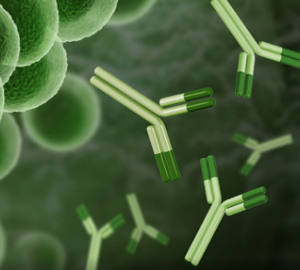
Understanding Functional Antibodies: Unlocking Their Potential in Research and Therapeutics
Antibodies are essential tools in biomedical research and therapeutic development, but not all antibodies function in the same way. While some antibodies are used solely for detection purposes, functional antibodies have a biological impact beyond simple binding. These antibodies play a critical role in modulating immune responses, blocking signaling pathways, and inducing cell death. Their versatility has made them indispensable in drug discovery, immunotherapy, and disease research.
What Are Functional Antibodies?
Functional antibodies are a specialised category of antibodies that exert a biological effect upon binding to their target. Unlike standard antibodies used for identification and quantification of proteins, functional antibodies influence cellular activity and molecular interactions in various ways. Importantly, the term "functional antibodies" refers to antibodies that are capable of performing their intended biological activity within a living organism (in vivo). This makes them especially valuable in preclinical and translational research, where understanding how antibodies behave in a physiological environment is critical.
Key Mechanisms of Functional Antibodies
Functional antibodies can act through several mechanisms, depending on their target and intended application:
- Neutralisation – Some antibodies prevent the function of a target molecule, such as blocking viral entry into host cells or inhibiting cytokine activity. For example, neutralising antibodies against SARS-CoV-2 were instrumental in controlling COVID-19 infections.
- Receptor agonism or antagonism – Certain functional antibodies either stimulate (agonists) or inhibit (antagonists) receptor signaling pathways. Checkpoint inhibitors like anti-PD-1 and anti-CTLA-4 antibodies work by blocking immune checkpoints, enhancing the immune system's ability to fight cancer.
- Antibody-dependent cellular cytotoxicity (ADCC) – Some antibodies recruit immune cells, such as natural killer (NK) cells, to destroy target cells. ADCC is a key mechanism in cancer immunotherapy, where antibodies like rituximab target tumour cells for immune-mediated destruction.
- Complement-dependent cytotoxicity (CDC) – Functional antibodies can activate the complement system, leading to the direct lysis of target cells. This is another pathway exploited in antibody-based cancer treatments.
- Cell depletion and apoptosis induction – Certain antibodies are designed to deplete specific cell populations by inducing apoptosis, a programmed cell death process. These are useful in autoimmune diseases and oncology, where targeting pathogenic cells is necessary.
- Bispecific and multispecific targeting – Some advanced functional antibodies are engineered to recognise two or more antigens simultaneously, enhancing therapeutic precision. Bispecific T-cell engagers (BiTEs) bring T cells into proximity with tumour cells, boosting immune-mediated killing.
Applications of Functional Antibodies in Research and Medicine
The wide-ranging effects of functional antibodies make them indispensable in multiple fields, including:
- Immunotherapy – Used in cancer treatment to enhance immune system activity against tumours.
- Infectious disease research – Studying immune responses and developing targeted therapies for viruses and bacteria.
- Autoimmune disease treatment – Suppressing or modulating overactive immune responses.
- Neuroscience and degenerative disease studies – Investigating neuroinflammatory mechanisms in diseases like Alzheimer’s and Parkinson’s.
- Drug discovery and development – Screening potential therapeutic candidates that target key biological pathways.
Why Bio X Cell Is a trusted provider of functional antibodies
Given that functional antibodies must retain their biological activity in vivo, sourcing high-quality, research-grade antibodies is essential. Bio X Cell specialises in providing monoclonal antibodies designed specifically for in vivo research applications - cited in over 20,000 publications. Their high-purity, low-endotoxin antibodies ensure reliable and reproducible results in functional studies, whether for immunotherapy research, immune cell depletion, or pathway modulation. With large-scale bulk production and a commitment to batch-to-batch consistency, Bio X Cell provides researchers with the tools they need to drive meaningful discoveries. Whether studying immune mechanisms or developing the next generation of therapeutics, Bio X Cell's functional antibodies offer the precision and performance required for high-impact in vivo research.
